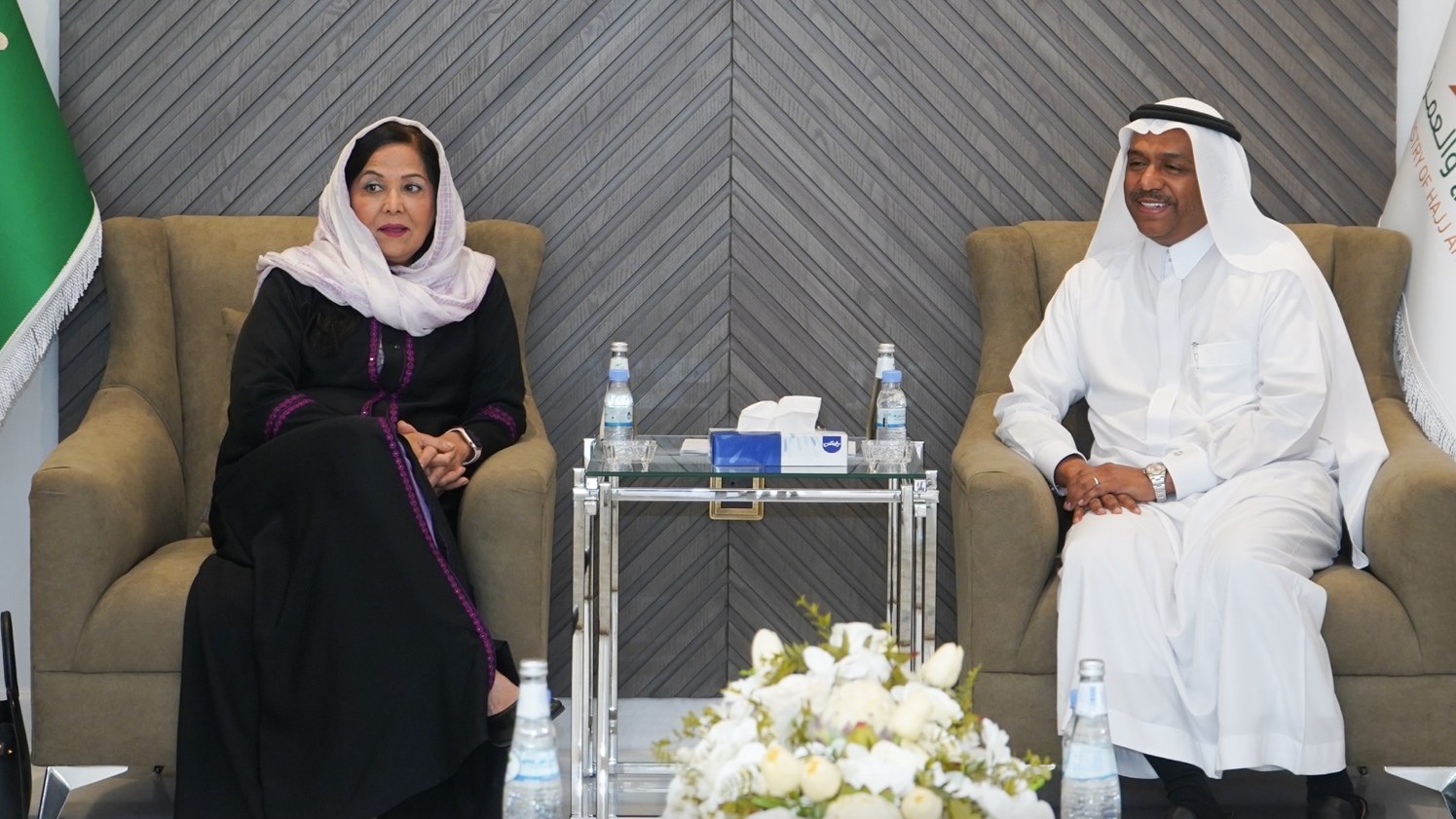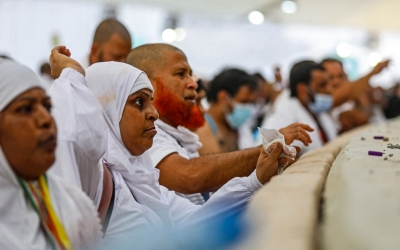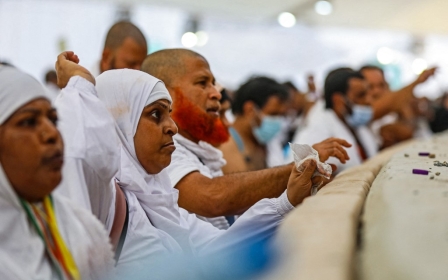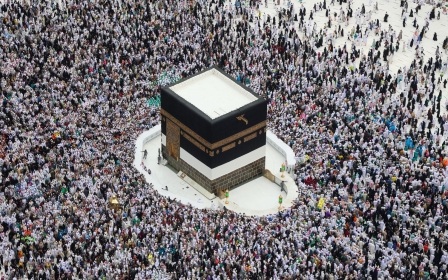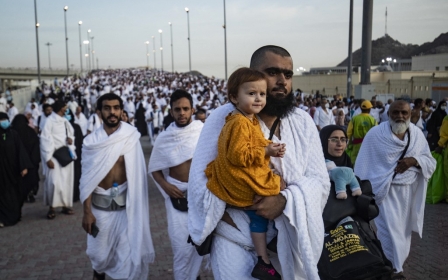Hajj: UK Muslims face '10-year wait' as Saudi Arabia slashes quota
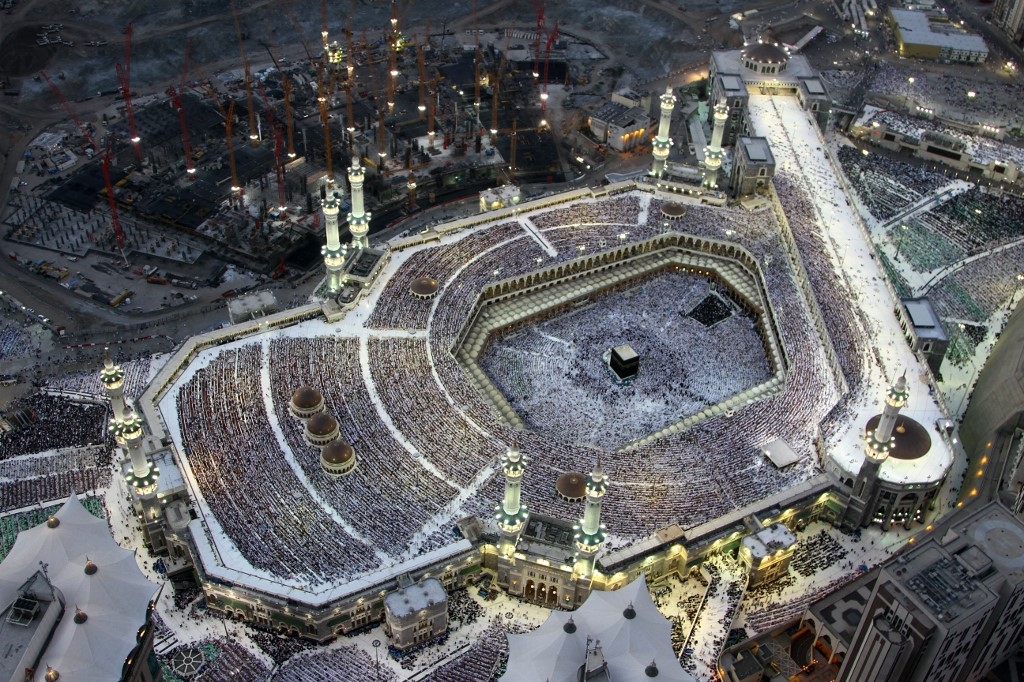
British Muslims may have to wait for up to 10 years to attend the Hajj because of a sharp reduction in the number of places made available to pilgrims from the UK by Saudi Arabia, Middle East Eye can reveal.
Under a new system introduced by the Ministry of Hajj and Umrah, the quota of Hajj places allocated to the UK for this year’s pilgrimage is set to be reduced to about 3,600 compared with more than 25,000 before the Covid-19 pandemic.
But just weeks before the Hajj, the final figure appears to be up in the air, with some people who have booked and paid for packages through the new system complaining that they are still waiting for confirmation of whether they have a place.
MEE has learnt that members of parliament plan to meet the Saudi ambassador in London next week to ask for the quota to be restored to pre-pandemic levels.
Members of the All-Party Parliamentary Group (APPG) on Hajj and Umrah, which is chaired by Labour MP Yasmin Qureshi, held an emergency meeting in parliament on Tuesday to discuss the situation.
It comes after Qureshi and other five other members of the group travelled to Saudi Arabia in February to meet officials at the Ministry of Hajj and Umrah, including Deputy Minister Abdulfattah bin Sulaiman Mashat.
The other members of the APPG delegation were Labour MPs Imran Hussain and Tahir Ali, Conservative MP Rehman Chisti, and two members of the House of Lords; Baroness Uddin, an independent peer, and Lord Qurban Hussain, a Liberal Democrat peer.
According to the minutes of a subsequent APPG meeting seen by MEE, the delegation was told that under the new system “the Hajj quota for pilgrims would be in line with Muslim majority countries and that the UK would have around 3,600 Hajj quota instead of the 25,000+ (pre COVID)”.
According to the minutes, the delegation urged the ministry to reconsider its decision because, they said, the UK had met and exceeded its Hajj quota.
“The reduction would have a detrimental effect on Muslims wanting to perform Hajj from the UK as they could end up waiting between five and 10 years. Concerns were also raised over the mechanism to monitor and record Hajj applications and [the] process to make it fair for people to go on Hajj,” the minutes said.
Calls to increase quota
Muslims view Hajj as a key pillar of the Islamic faith and are obligated to attend at least once in their lifetime if they are healthy and financially able to.
This year’s Hajj takes place between 28 June and 1 July.
Rashid Mogradia, the chief executive of the Council for British Hajjis, an organisation which serves as the secretariat of the APPG, told MEE: “Yasmin Qureshi will be meeting the Saudi authorities to raise issues faced by British Muslims with the new booking platform and to explore the idea of expanding and restoring the quota to pre-pandemic levels in order to meet demand."
According to the minutes of the APPG meeting, Saudi officials told the MPs that new quotas for the UK and other western countries would bring them in line with Muslim-majority countries which have historically been allocated one place per every thousand Muslims in the population.
The quota figure for Muslim-majority countries, however, can vary depending on the arrangements made between Saudi Arabia and individual countries.
It remains unclear whether the Saudi government intends to revise the number every year or what data it will draw on to calculate how many Muslims would be eligible to go from western countries.
Concerns around the quota have come to light after the Ministry of Hajj and Umrah launched a new booking system known as Nusuk, replacing the decades-old system of allowing local travel agencies to organise Hajj tours for western pilgrims.
'Country capacity full'
But some British pilgrims who used the system told MEE they could not book packages because of messages that claimed the “country capacity is full” for the UK.
Speaking at the emergency meeting, members of the APPG also highlighted their intention to raise concerns with the Saudi ambassador regarding the Nusuk system.
Naz Shah, the Labour MP for Bradford West, which has the largest Muslim population among all UK constituencies, told the group she had previously raised issues about Nusuk with the ambassador.
The Hajj pilgrimage is one of the largest religious gatherings in the world with 2.5 million pilgrims attending the event.
This year, Saudi Arabia said there would be no limit to the number of pilgrims attending the Hajj after three years of restrictions because of the pandemic.
Before the pandemic, around 25,000 Muslims from the UK were allocated to go to Hajj each year.
But after Saudi Arabia announced that the pilgrimage was to be scaled down in 2022 - with numbers cut to one million pilgrims worldwide instead of the pre-pandemic total of 2.5 million - the UK quota was cut to 12,348.
Last year, Saudi also ended the use of travel agencies organising the Hajj, and introduced a new system where western pilgrims had to book the Hajj via a company called Motawif - similar to Nusuk.
But pilgrims who used Motawif complained of their packages being "downgraded", of being left with no hotel room days before the Hajj, and of being stranded in the desert.
The APPG also added that they used their meeting with the Ministry of Hajj and Umrah to voice their concerns over the Motawif system and called on Saudi Arabia to process the refunds of pilgrims whose packages were downgraded.
Middle East Eye propose une couverture et une analyse indépendantes et incomparables du Moyen-Orient, de l’Afrique du Nord et d’autres régions du monde. Pour en savoir plus sur la reprise de ce contenu et les frais qui s’appliquent, veuillez remplir ce formulaire [en anglais]. Pour en savoir plus sur MEE, cliquez ici [en anglais].


